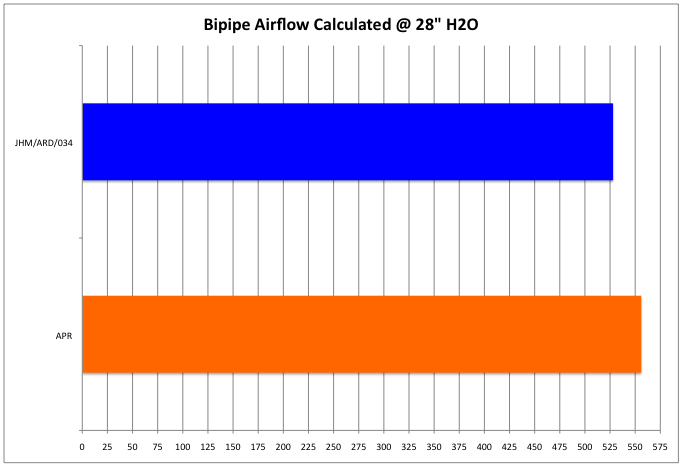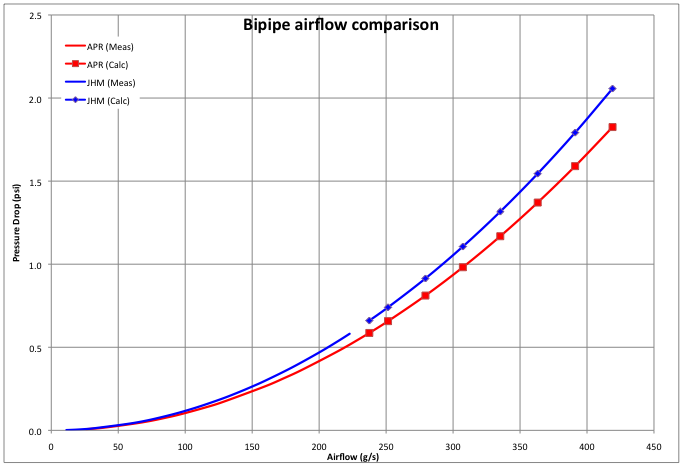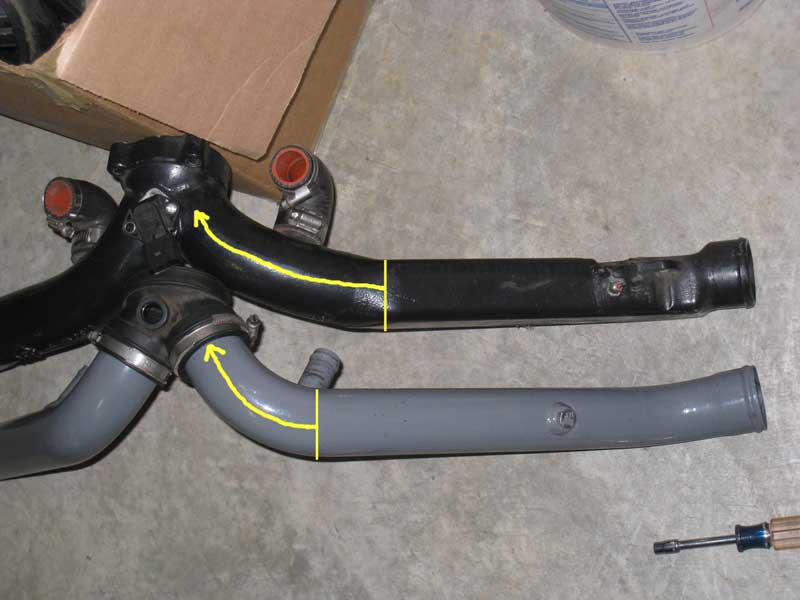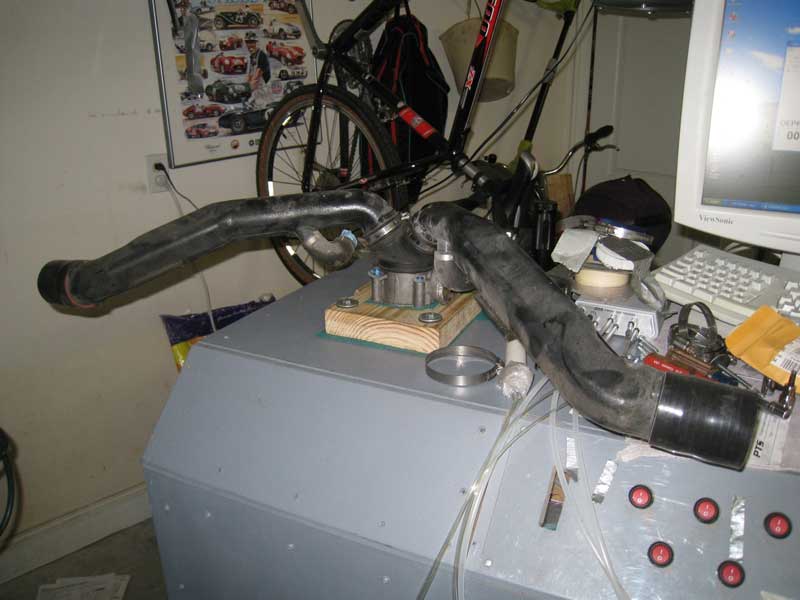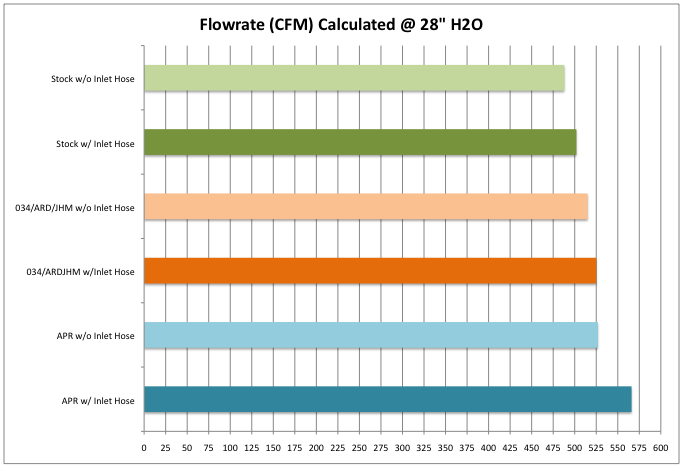Preliminary results. Possibly subject to change, but not likely.
The bipipe being compared against the APR one piece unit is the JHM product, but my understanding is that the JHM, 034, ARD options are all similar.
The bipipe and rubber TBB for the JHM item are attached to a stock throttle body.
The APR item flows about 5% more at 28″ H2O.
Updated Results
After securing the bipipe and throttle body to the bench a little more solidly, as well as plugging the DV hoses with diverter valves, instead of capping them, I ran the flow test again.
The JHM up-pipes mounted to the bench.
The results
I did a comparison between the pipes and then ran the pipes through again without the inlet adapter hoses. I’ve observed that when these hoses are added often the results will change, sometimes resulting in higher airflow rates. Reviewing flow bench tests done by others it is clear that the inlet shape is an important component and ideally the entry would be a smooth, bell-mouth shape. Trying to construct multiple bell-mouth adapters for the various configurations that I am testing would be more trouble than I want to go through, so my procedure is to keep a standard inlet for the comparisons. I do this accepting that the inlets may be less than ideal, but hopefully the standardizing of inlet type will still produce valid results between items, if less than would be achieved using a better designed inlet.
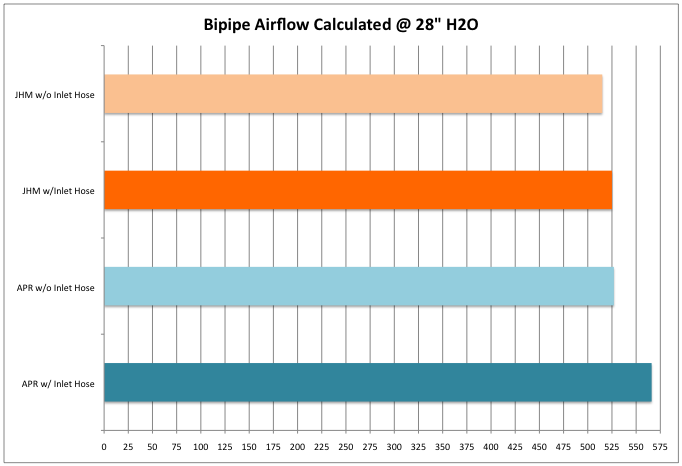 JHM up pipe flow testing video:
JHM up pipe flow testing video:
Here’s one possible explanation for the different flow rates.
The sharper turn leading into the throttle body using the JHM stye up-pipes may be hurting the airflow slightly as compared to the APR bipipe’s more gradual curve.
I was finally able to borrow a set of stock up-pipes to compare with the others that have been tested.
The Results

